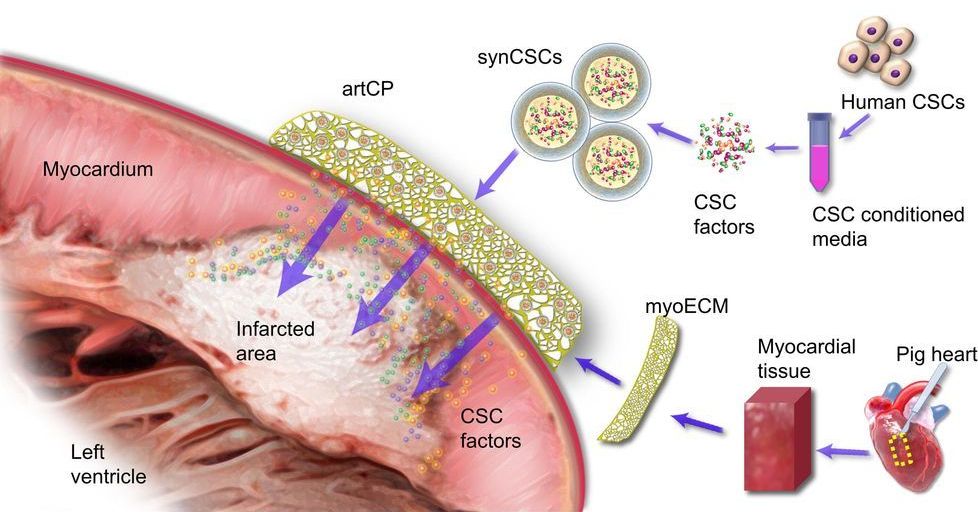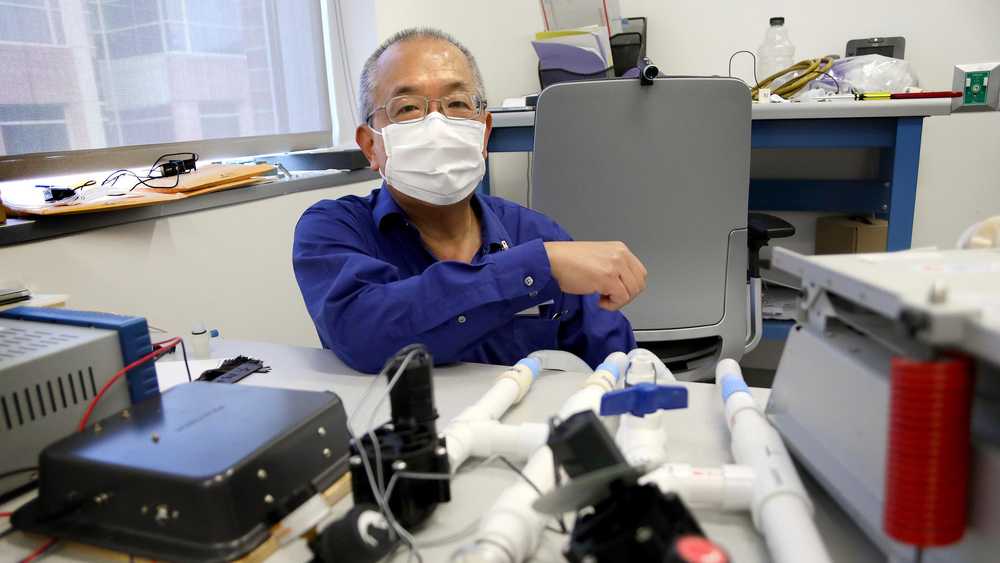Researchers from North Carolina State University have developed an “off-the-shelf” artificial cardiac patch that can deliver cardiac cell-derived healing factors directly to the site of heart attack injury. In a rat model of heart attack, the freezable, cell-free patch improved recovery. The researchers also found similar effects in a pilot study involving a pig model of heart attack.
Cardiac patches are being studied as a promising future option for delivering cell therapy directly to the site of heart attack injury. However, current cardiac patches are fragile, costly, time-consuming to prepare and, since they use live cellular material, increase risks of tumor formation and arrhythmia.
“We have developed an artificial cardiac patch that can potentially solve the problems associated with using live cells, yet still deliver effective cell therapy to the site of injury,” says Ke Cheng, Randall B. Terry, Jr. Distinguished Professor in Regenerative Medicine at NC State’s College of Veterinary Medicine and professor in the NC State/UNC Joint Department of Biomedical Engineering.








